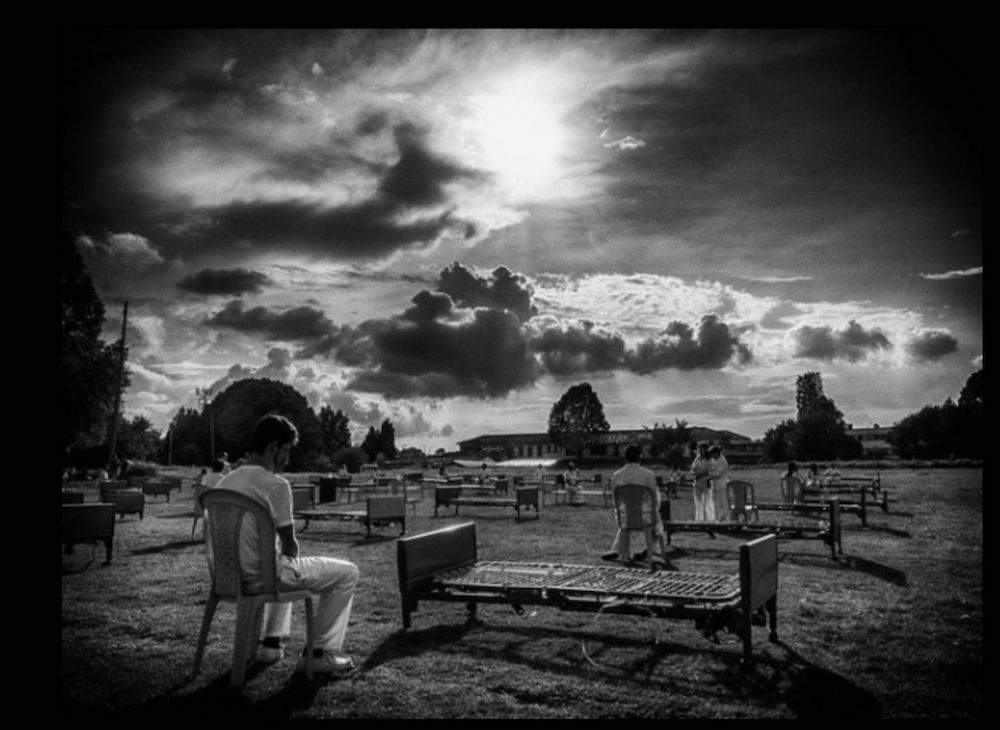
David Lozano
La Hortua inhospitalaria, 2016/17, 28 series photographs
To Dear. Alternative Art Gallery

These photographs are derived from La Hortua inhospitalaria, a performative action by artist David Lozano, presented in the context of the “World Summit on the Arts and Culture for Peace” in 2017. It was held in the ruins of the architectural complex of the San Juan de Dios Hospital, a former icon of the public health system in Bogotá, Colombia.
The work acquires new meaning and additional relevance in light of the health and economic emergencies resulting from the COVID-19 pandemic. The governmental response to the crises revealed an attitude of abandonment and indolence towards the public healthcare system, as well as the citizens and healthcare workers who are facing this virus.
Lozano’s critical commitment is reflected in this performance, and reminds us that illness, death, and healthcare have become a business in a capitalist system that disregards human life. These images reflect on the loneliness of the dying, the experiences of those trying to find a bed, the immobile healthcare workers who are victims of bureaucracy, and how hospitals are territories of oblivion and desolation. This work is a permanent cry for help that demands the right to access healthcare.
-Curator|Luis Carlos Manjarrés Martínez
David Lozano
(b. 1960; Bogotá, Colombia; based in Bogotá) A visual artist with a specialization in painting. He has a Master’s degree in Visual and Fine Arts from the Universidad Nacional de Colombia. He teaches at the Pontificia Universidad Javeriana, Universidad de los Andes, Santo Tomás de Aquino and the Academy of Superior Arts of Bogotá. Currently he is a teacher and the director of the School of Visual Arts at the Universidad Nacional de Colombia. As an artist, his work has focused on the investigation of the postmodern and globalized body.
Curator : Luis Carlos Manjarrés Martínez
Bogotá, Colombia. In 2018 he was part of the curatorial team of the exhibition of Voices to Transform Colombia. This exhibition aimed to address the enormous challenge of recounting the Colombian armed conflict, starting from the perspective of its victims; Voices is for the long-run script of the Museum of Historical Memory of Colombia on the armed conflict and peace. In the last five years, he has curated four art exhibitions on sexuality, sex, sexual diversity and gender expression with the MuseoQ, a museological initiative to make visible that makes visualized stories and memories related to identity and gender expression as well as the non-hegemonic sexualities and orientations, as an essential part of the national story. In addition to this, he participated in 2015 in the creation of the Thinking Center for the Arts and the Social Agreement of the Faculty of Arts of the National University of Colombia and served as the public coordinator of the Ephemeral Museum of Oblivion in the National Salon of Artists of 2015.


